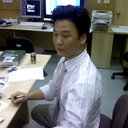Age-dependent predictors for recurrent stroke: the paradoxical role of triglycerides.
Słowa kluczowe
Abstrakcyjny
BACKGROUND
Although long-term predictors of mortality and vascular events after ischemic stroke are well defined, the age-dependent differences in predicting outcomes are unknown, particularly for lipid parameters.
METHODS
We assessed recurrent stroke and other vascular events in patients with first-ever ischemic strokes who were registered in a prospectively collected hospital-based stroke registry. Patients were classified into a middle-age group (40-64 years old) and an old-age group (65 years and older).
RESULTS
A total of 551 patients comprising 235 middle-age and 316 old-age subjects were investigated. At the mean follow-up of 26.4 months, 49 (8.9%) patients had experienced recurrent stroke. Outcome events in the middle-age group (3.8%) were less frequent than in the old-age group (12.7%). The effects of vascular risk factors were different across age groups. In particular, the hazard ratio direction for triglycerides was significantly different between age groups for recurrent stroke or composite outcomes.
CONCLUSIONS
Incidence and predictors of stroke and other vascular events following ischemic stroke are age-dependent. Differential effects of triglycerides on long-term outcomes following ischemic stroke were found to be hazardous at middle age but turned out to be non-significant at old age.


